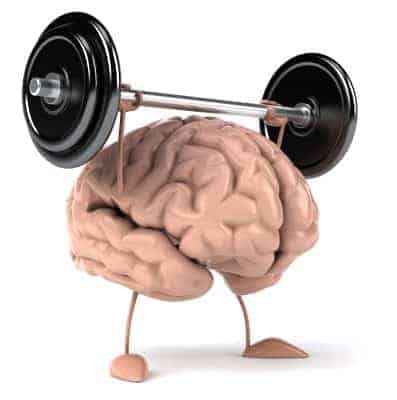 1. FISH: Studies show that eating fish is correlated with more gray matter in the parts of the brain associated with memory and cognition. NOTE: The same has not been seen with fish oil supplements, although there is plenty of evidence for other brain health benefits from fish oil, especially the DHA component.
1. FISH: Studies show that eating fish is correlated with more gray matter in the parts of the brain associated with memory and cognition. NOTE: The same has not been seen with fish oil supplements, although there is plenty of evidence for other brain health benefits from fish oil, especially the DHA component.REFS:
Am J Prev Med October 2014Volume 47, Issue 4, Pages 444–451
Regular Fish Consumption and Age-Related Brain Gray Matter Loss
Cyrus A. Raji, Kirk I. Erickson, et al.
J Neurosci. 2005 Mar 23;25(12):3032-40. A diet enriched with the omega-3 fatty acid docosahexaenoic acid reduces amyloid burden in an aged Alzheimer mouse model. Lim GP, Calon F, et al
2. AVOCADO: Evidence suggests that avocado can improve memory and problem-solving in older people.
REF: Nutrients. 2017 Sep; 9(9): 919.
Avocado Consumption Increases Macular Pigment Density in Older Adults: A Randomized, Controlled Trial. Scott TN, Rasmussen HM, Chen O, Johnson EJ
3. CAFFEINE and memory.
Nature Neuroscience volume 17, pages 201–203 (2014)
Post-study caffeine administration enhances memory consolidation in humans. Daniel Borota, Elizabeth Murray, et al.
NOTE: Why is caffeine a problem for some people? Answer: 8 years after I wrote Caffeine Blues, a genetic variant was discovered that solved this mystery. Turns out, some people metabolize / detoxify caffeine rapidly, and for the most part, suffer no adverse effect. Others are slow metabolizers, and that’s a problem, because multiple doses of caffeine will have a cumulative effect, resulting in anxiety, depression, insomnia and other adverse effects resulting from chronic elevation of cortisol and other stress hormones. In the US, about 50% of adults are slow metabolizers, so in clinical practice, I saw a lot of caffeine-related problems that were eliminated simply by reducing caffeine intake. Also remember that coffee is just one source of caffeine. Many people drink Coke and “energy” drinks all day.
REF:
JAMA. 2006 Mar 8;295(10):1135-41.
Coffee, CYP1A2 genotype, and risk of myocardial infarction.
Cornelis MC, El-Sohemy A, Kabagambe EK, Campos H.
4: VITAMIN E. A fat-soluble antioxidant is likely to help “prevent or delay cognitive decline” in older people.
REF: Nutrients. 2014 Dec; 6(12): 5453–5472.
Effects of Vitamin E on Cognitive Performance during Ageing and in Alzheimer’s Disease
Giorgio La Fata,* Peter Weber, and M. Hasan Mohajeri
5. BLUEBERRIES: This high-antioxidant fruit could improve memory and cognitive function. Science News
Blueberries, the well-known ‘super fruit,’ could help fight Alzheimer’s
March 14, 2016
Summary:
The blueberry, already labeled a ‘super fruit’ for its power to potentially lower the risk of heart disease and cancer, also could be another weapon in the war against Alzheimer’s disease.
6. DHEA
Two years after I wrote The DHEA Breakthrough, scientists discovered that DHEA is synthesized in the brain, not just the adrenal glands. That resulted in a flood of studies to answer the question, “Why would the brain manufacture a steroid hormone? And the answer is compelling: Turns out DHEA plays a critical role in protecting the brain, AND is the only molecule capable of stimulating stem cells to become fully-functioning neurons. In other words: real neuro-protection and regeneration.
Regarding DHEA as a brain booster, the literature must be studied carefully. Studies are inconclusive regarding the cognitive benefits from giving demented people DHEA supplements. Some studies report benefit. Most do not. Here’s what we can say with confidence. People with higher DHEA levels have better cognitive function and lower rates of dementia. This suggests that starting DHEA supplementation in your 40’s is a better strategy than waiting till you can’t find your car keys.
REFS:
1. J Steroid Biochem Mol Biol. 2015 Jan;145:273-80.
Neurobiology of DHEA and effects on sexuality, mood and cognition.
Pluchino N, Drakopoulos P, et al.
2. Neuropsychiatr Dis Treat. 2018 Sep 19;14:2389-2399.
Gender differences in the relationships among neurosteroid serum levels, cognitive function, and quality of life. Chen CY, Wu CC, Huang YC, Hung CF, Wang LJ.
3. Eur J Endocrinol. 2001;145:103–106. Dehydroepiandrosterone replacement therapy. Gurnell EM, Chatterjee VK.
4. Ageing Res Rev. 2002;1:29–41. Uses of DHEA in aging and other disease states. Johnson MD, Bebb RA, Sirrs SM.
5. J Clin Endocrinol Metab. 1994;78:1360–1367. Effects of replacement dose of DHEA in men and women of advancing age. Morales AJ, Nolan JJ, Nelson JC, Yen SS.
7: MORE
There is good evidence from animal studies that epigallocatechin-gallate (EGCG) from green tea, DHA from fish oil and Alpha Lipoic Acid all have neuro-protective benefits, mostly related to reduced inflammation.
And finally, a word of CAUTION: As baby boomers reach their mid-70’s, we could have predicted the avalanche of brain health products appearing on the market. Most are hodge-podge collections of neuro-active compounds, but that strategy has never been adequately tested. In fact, a recent study notes: “Our results demonstrate that interactions between nutraceutical products might result in counterproductive outcomes, highlighting the fact that manufacturers of nutraceuticals containing multiple compounds should be careful not to claim additive or synergistic effects of their combination products without having tested it in animal models and/or human clinical trials.” Bottom line: If you’re going to spend good money on a brain health supplement, demand to see evidence that the actual product (not just individual ingredients) has been shown to produce measurable cognitive benefits in real human beings.
REF:
Neurobiol Dis. 2019 Apr;124:505-519.
Assessment of diets containing curcumin, epigallocatechin-3-gallate, docosahexaenoic acid and α-lipoic acid on amyloid load and inflammation in a male transgenic mouse model of Alzheimer’s disease: Are combinations more effective?
Sharman MJ, Gyengesi E, et al.
